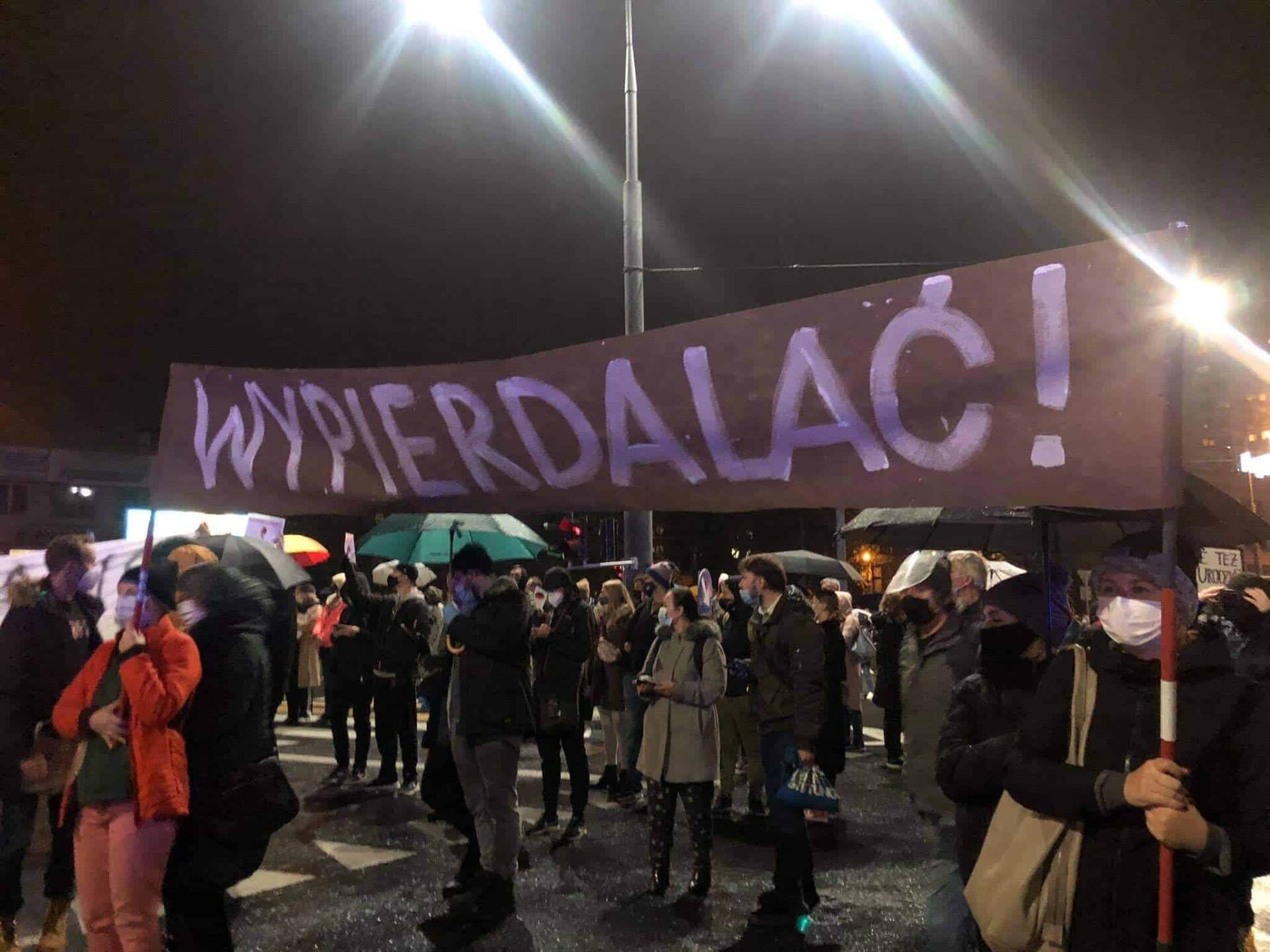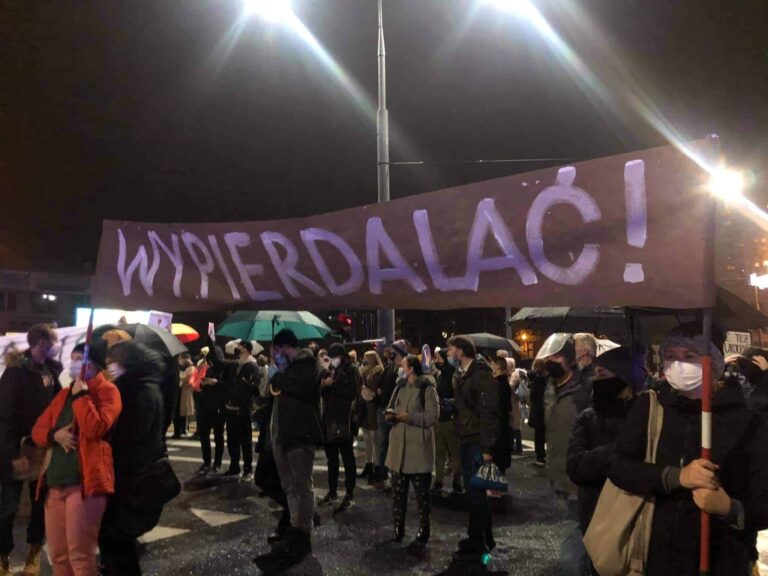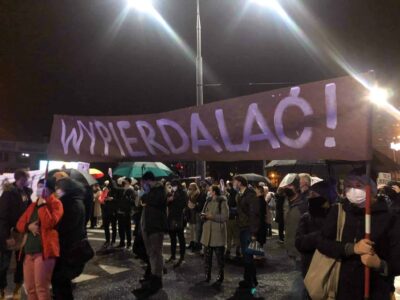The Constitutional Tribunal’s decision to ban abortion in cases of foetal defects resulted in a wave of pro-women’s rights protests in Warsaw and other cities.
Amid the dramatic nature of the uncontrolled peak of the second-wave of the COVID-19 pandemic in Central Europe, at a time when Poland is building a hospital on the National Stadium and announces new strict Covid restrictions hitting the economy, the Polish Constitutional Court terminated a 27-year political compromise on abortion law in Poland. The Court’s decision to ban abortion due to fetal defects resulted in a wave of spontaneous protests in Warsaw and other Polish cities.
Just one day before the Polish Tribunal’s sentence, the Slovak parliament rejected tightening abortion law with one vote. Similarly, as in Poland, it was pushed by Christian lawmakers and criticised by women’s rights groups.
“This draconian law would impose new barriers to abortion and endanger the health and wellbeing of women and girls” – stated Amnesty International in Slovakia, pointing out the barriers the law would introduce to women: doubling waiting periods (from 48 to 96 hours), imposing new medical requirements for abortion on health grounds and forcing women to state their reasons for temination.
Despite losing the parliamentary vote , Slovak conservatists are not going to give up. “In six months we will submit our proposal again” declared OLANO-Christian Union MP Anna Zaborska, who is the main author of the proposal.
The law in Slovakia, where abortion is permitted in the first 12 weeks of pregnancy, has been far more liberal than in Poland, which had one of the most restrictive regulations in Europe even before the latest Constitutional Tribunal decison.
That was the reason why Polish women were crossing the border with Slovakia and Czech Republic to get access to the procedure of terminating pregnancy. According to the data published by the Slovak National Centre for Health Information, in 2019 medical facilities in Slovakia recorded a total of 7153 abortions, of which those of women without permanent residence in the Slovak Republic accounted for 1,329 cases.
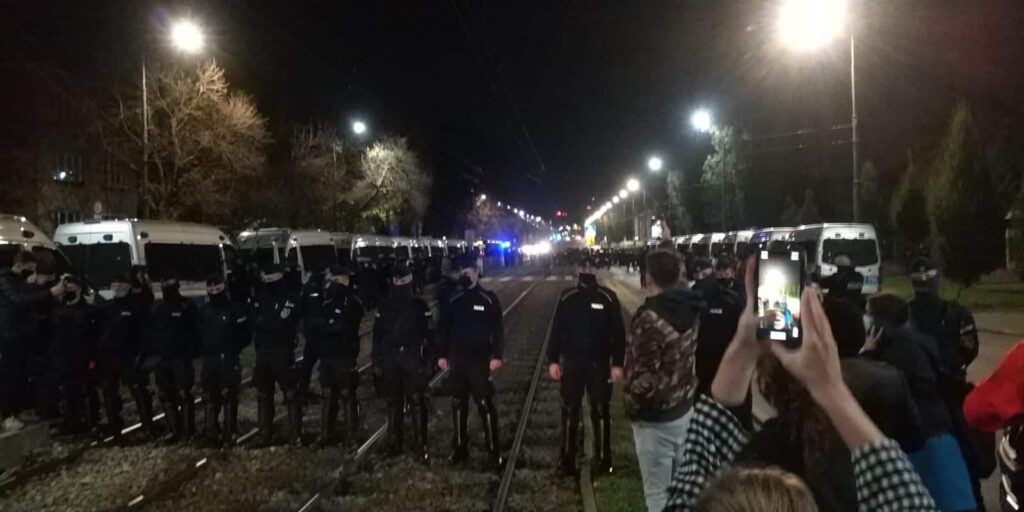
Police force during the protest in Warsaw, photo: Jacek Urbańczyk
Whilst outraged women are protesting in Poland, far-right activists are celebrating a victory. This would not be possible if the Constitutional Court had not been taken over by the conservative ruling party Law and Justice at the end of 2015. Since then, the Top Court has been dubbed “the group of judges disposable to politicians” by the opposition, and “the court on political call”. The so called “judiciary reforms” have been one of the main issues between the Polish government and the EU Commission.
Among the newly appointed judges, there were two well known Law and Justice politicians: Krystyna Pawłowicz and Stanisław Piotrowicz, the latter – a parliamentary leader when the judiciary system had been taken over in the previous parliamentary term. The President of the Court, Julia Przyłębska, is herself in friendly relations with the ruling party politicians including Jarosław Kaczyński, the party leader who was recently appointed a deputy prime minister.
The Court’s decision on banning one of only three legal premises of abortion (and the main reason in terms of abortion numbers) ruins a compromise from 1993 which was publicly defended by president Lech Kaczynski, Jaroslaw Kaczynski’s brother who died in the Smolensk air crash. It is interpreted as a political gift to far-right activists and powerful organizations like Ordo Iuris, whose influence is systematically growing in Poland. Ordo Iuris emerged from Tradition, Family and Property networks that openly promote the idea of going back to the medieval order. “Their goal is clear: creating an environment that will have the greatest possible impact in shaping legislation and influencing local governments. (…) As such, TFP is not an ordinary non-governmental organisation, it is a political engine that idealises a medieval way of life and aspires to inflict their ideology on everyone else” – to quote a report by Neil Datta “Modern-day Crusaders in Europe” (2018).
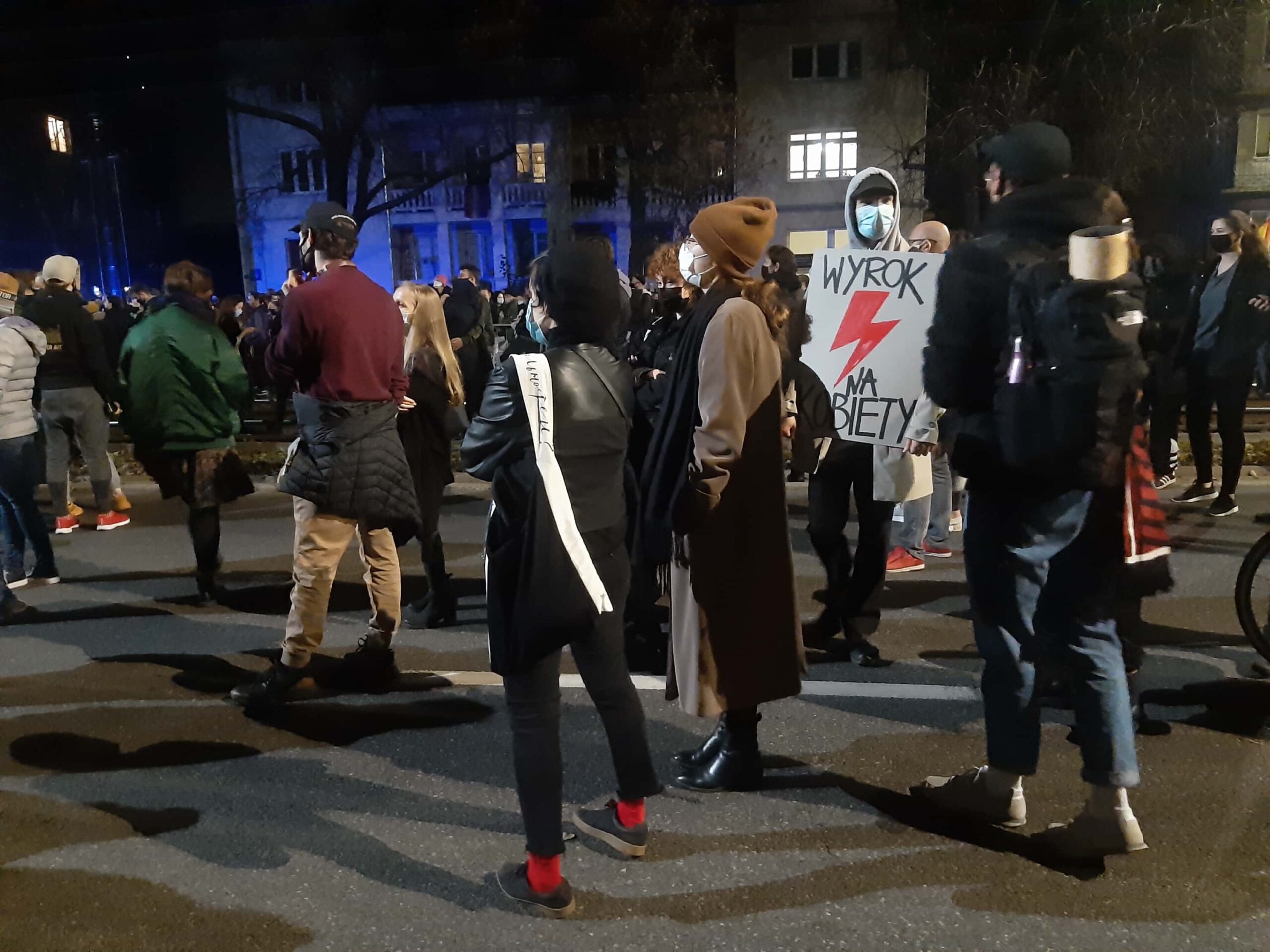
Protest in Warsaw, October 22, 2020 Photo: Magdalena Lemańska
Helsinki Foundation on Human Rights experts have no doubt that this decision – which is an effective ban on abortion – will mainly affect the most vulnarable women who can’t afford abortion in other countires like Slovakia or Czech Republic. It deepens their and their families’ poverty and exposes them, their families and unborn children to mental suffering and physical pain. “This is an unprecedented attack on women’s rights, family rights and on the freedom from inhuman and degrading behaviour” – highlights HFPC in their statement, adding that the declaration by the Constitutional Tribunal “will contribute to increasing underground abortion and abortion tourism in Poland”.
According to the organization experts, “forcing children to live in suffering and pain and slowly die in the name of the primacy of fundamentalism over the dignity of another human being is a violation of human rights”.
The latest data published in August 2020 by the Catholic Information Agency (and provided by the Ministry of Health in Poland) show that among all 1100 legal abortion procedures performed in 2019, 1074 of them (about 98%) were due to the high probability of severe and irreversible fetal defect or an incurable life-threatening disease.
Many experts in Poland fighting for women’s rights also draw attention to the government’s lack of support for parents of children with severe disabilities: the state doesn’t provide them with either financial, or institutional aid. So far, the ruling party has not offered any significant change for these families, despite their promises to tackle this problem.
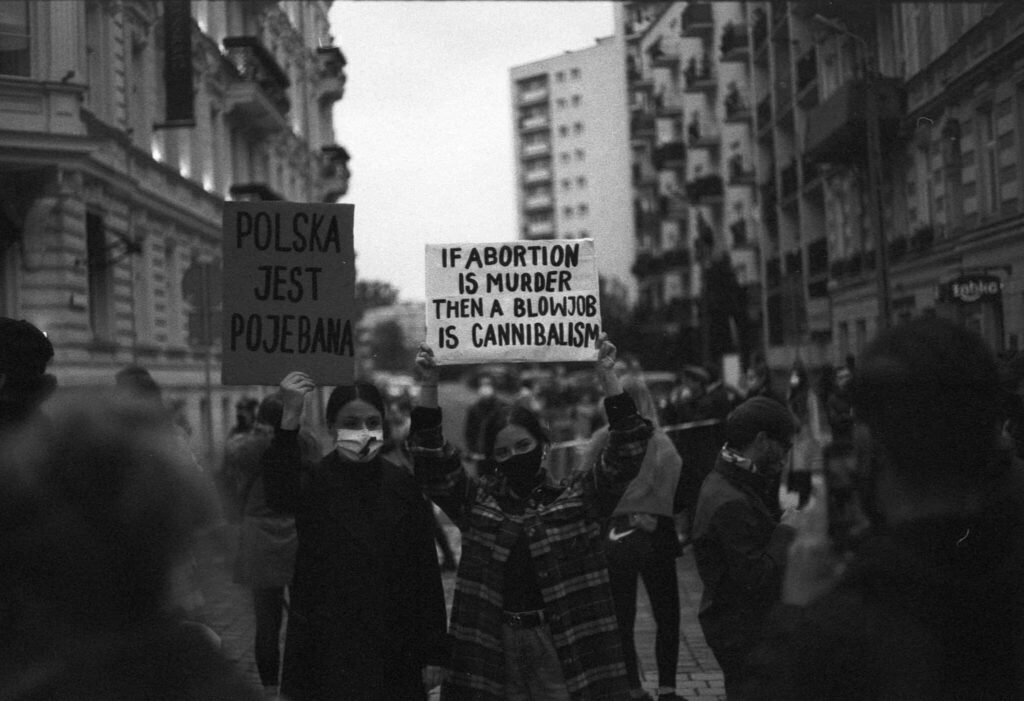
Protest in Poznań, October 23, 2020 photo: Bohdan Bobrowski, Flickr, CC BY-SA 2.0
In the short term, far-right fundamentalism in Poland has a reason to celebrate its victory. However, women’s rights activists declare they will not stop protests against such violation of their rights, despite the pandemic and tearing gas used by the police. Women take to the the streets with a clear message on the banners: “F…k the government”. Regardless of the outcome of the demonstrations happening now, in the long term it might turn out to be a political breaking point, giving a new dynamic for liberal swing of the pendulum.
Anna Gielewska is co-founder and editor-in-chief of VSquare and co-founder of Polish investigative outlet FRONTSTORY.PL. She is also vice-chairwoman of Fundacja Reporterów (Reporters Foundation). A journalist specializing in investigating organized disinformation and propaganda, Gielewska was the John S. Knight Fellow at Stanford University (2019/20) and has been shortlisted for the Grand Press Award (2015, 2021, 2022) and the Daphne Caruana Galizia Award (2021, 2023). She was the recipient of the Novinarska Cena in 2022.

